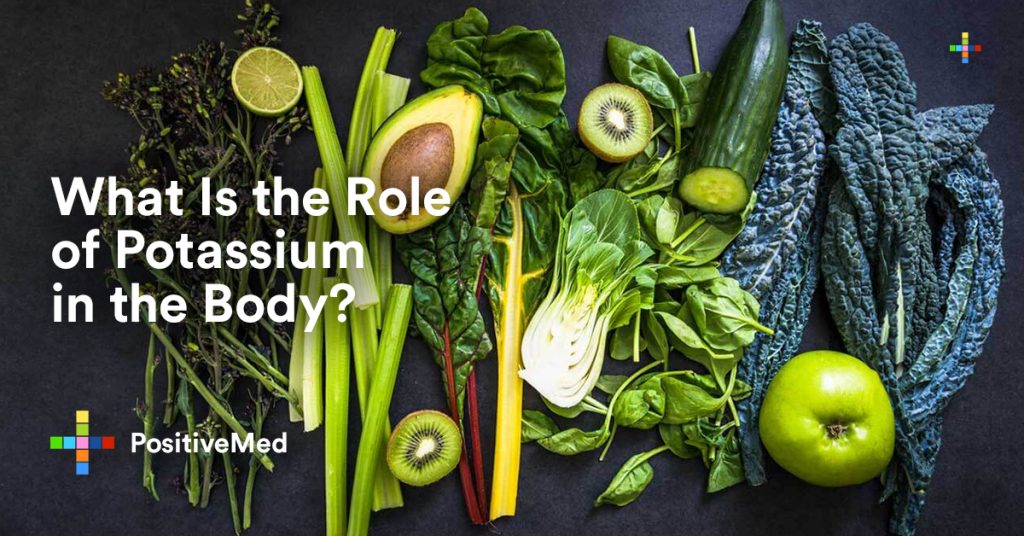Potassium is a mineral classified as an electrolyte since it is very reactive with water. It dissolves in water to produce positively charged ions. This property makes it conduct electricity which is important for many body processes.
The importance of potassium in our bodies is undervalued. Here is a detailed review of potassium and what it can do for your health.

Sources of Potassium
Potassium is mainly abundant in many whole foods such as fish, fruits, and vegetables. Most health experts agree that taking about 3,500 to 4,700 mg of potassium every day can be taken as the optimal amount.
Here is the recommended diet rich in potassium. You can be taking a 3.5-ounce (100 gram) food serving rich in potassium.
• Cooked beet green: 900 mg
• Baked yams: 670 mg
• Cooked pinto beans: 646mg
• Baked white potatoes: 544 mg
• Grilled Portobello mushrooms: 521 mg
• Avocado: 485 mg
• Baked sweet potato: 475 mg
• Cooked Spinach: 466 mg
• Cooked salmon: 414 mg
• Cooked peas: 271 mg
The over-the-counter supplements are not the ideal way to increase potassium intake. In fact, in many countries, potassium is limited to 99 mg. This is much less than the amount one can get from one serving of the whole foods above. The limit is more likely because various studies have found that doses from supplements that are in excess of potassium can damage the gut. It can also cause heart arrhythmia leading to death.
However, in the event of those people who suffer from the deficiency of potassium can get a doctor prescription for a supplement of a higher dose.
Potassium Helps To Regulate Fluid Balance
Potassium is one the main electrolyte in our bodies. It determines the water amount inside the body cells while sodium is the main electrolyte outside the cells. Potassium ions will ensure that there is osmolality balance in the cells.
In case of osmolality inequality, the cells may shrink as water will move out of them. They can as well swell up and burst as water gets into them.
Maintaining a good fluid balance for optimal health is important. Poor balance of body fluids can lead to dehydration which affects kidneys and heart.
Eat a diet that is rich potassium diet and stay hydrated to help to keep proper fluid balance.
It Is Important For the Nervous System
The nervous system works to relay messages between the body and the brain. The messages are conveyed in the form of nerve impulses and help to regulate the contractions of the muscles, reflexes, heartbeat and other key body functions.
Interestingly, the potassium ions generate the nerve impulses moving out of cells while sodium ions generate nerve impulses that move into cells. The movement of these ions changes the cell voltage which activates the nerve impulse.
A decrease in potassium levels in the blood affects the ability of the body to generate the nerve impulses. To maintain a healthy function of the nerves gets a diet rich in potassium.
It Helps To Regulate Heart and Muscle Contractions
The nervous system helps to regulate the contractions of muscles. Altered levels of potassium in the blood can affect the nerve signals in your nervous system. This will consequently weaken the contraction of muscles.
The potassium mineral is also important in maintaining a healthy heart. This is because the ions help movement in and out of cells help to keep a regular heartbeat. When its levels are high, the heart may become flaccid and dilated. This weakens its contraction and you experience abnormal heartbeats.
The Health Benefits Of Potassium
When you consume a diet that is rich in potassium, here are some of the impressive health benefits that you get.
1. It helps reduce blood pressure
Nearly one in every three Americans is affected by high blood pressure. It is a risk factor for heart disease and has become the leading cause of deaths. Different studies have shown that people who eat foods rich in potassium had reduced blood pressure.
The potassium minerals help to reduce blood pressure by removing the excess sodium.
2. Helps protect Against Strokes
Lack of the flow of blood to the brain is the cause of strokes. For every year, it causes more than 130,000 deaths in America.
Several studies have shown that eating a diet that is rich in potassium can help prevent strokes. In a certain study, it was found out that it reduces the risk of strokes by 24%.
3. Helps to reduce kidney stones
The common mineral in the kidney stones is calcium. Several studies have shown that potassium citrate lowers the levels of calcium in the urine. This way, potassium helps to fight kidney stones.
Scientists have found that those who consume potassium daily reduce the risks of kidney stones by 51%.






